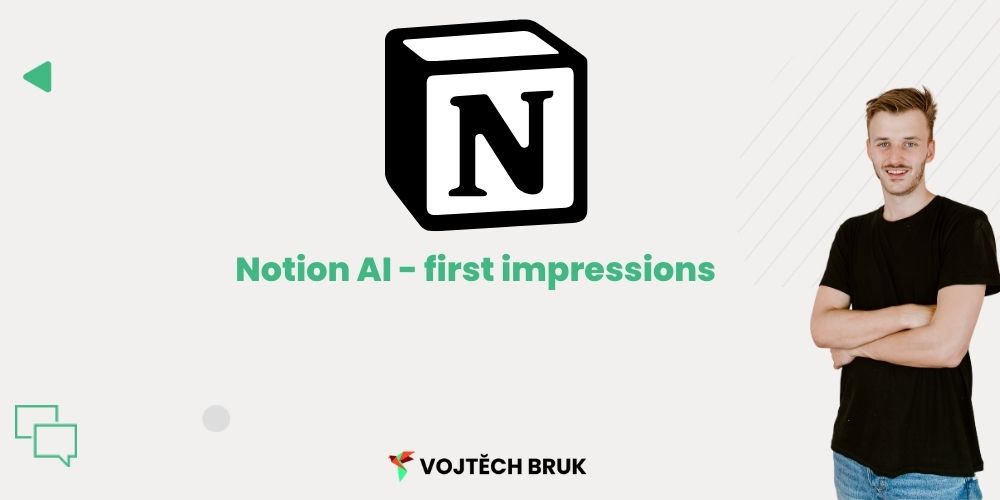I’ve written about Notion before. Notion is great and I use it every day. Soon Notion will also be adding its AI, which we’ll take a look at today in the beauty section.
What is Notion AI and how does it work?
Notion AI is an artificial intelligence (slightly similar in function to, say, the GPT chat) that was designed to make everyday work in Notion easier.
Notion AI can more or less do three kinds of operations:
- generate text,
- editing text (truncating, rewriting, translating)
- summarizing text (creating summaries, task sheets based on text, etc.
Just so I don’t stress you out… I don’t think Notion AI excels in any of these activities. However, it can still be an interesting extension.
What can Notion AI be used for in practice?
Based on brief testing, it seems to me that the technology can be used to generate first drafts of articles (if you have a good outline and the right topic), summarize meeting minutes (would like to try more in practice), or perhaps shorten long general texts.
Translations are also an interesting use-case, but for translations I still find more interesting so far, for example the previously mentioned integration of Notion and Deepl.
How can you get Notion AI?
Momentarily, the only way is by signing up at https://www.notion.so/product/ai as a beta tester and waiting to be selected. I was selected about 3 weeks after signing up.
Will Notion AI be free?
Yes and no. In the first phase, Notion AI will probably be free for all for people to try out the technology. The creators will improve it based on feedback and then move it to paid plans.
Can Notion AI write code?
Yes. Although it’s questionable whether programming is something you would do within Notion. However, for educational content creators, for example, this might be an interesting feature.
Below you will find a Python calculator that Notion created as part of testing, I gave it the wrong assignment, so don’t focus so much on the calculator per se, but rather on the fact that with a good assignment, the calculator would most likely work well)).
# Input function
def input_data():
paint_weight = float(input("Enter paint weight: "))
room_dimensions = float(input("Enter room dimensions: "))
return paint_weight, room_dimensions
# Functions to calculate
def calculate(paint_weight, room_dimensions):
walls_paintable = paint_weight / room_dimensions
return walls_paintable
# Function for output
def output(walls_paintable):
print("How many walls can we paint: %s" % walls_paintable)
# Main function
def main():
paint_weight, room_dimensions = input_data()
walls_paintable = calculate(paint_weight, room_dimensions)
output(walls_paintable)
# Calling the main function
if __name__ == '__main__':
main()
Final Verdict
I’m not impressed. I find the AI to be rather mediocre and compared to GPT Chat, I think it rather lags behind. However, the fact that it’s directly part of Notion is definitely a strength that’s not to be underestimated.
If the AI followed more of a path of features useful specifically for Notion and didn’t try to do what other models already do (better) (Chat GPT, Google BARD), it could be a great virtual assistant.
I’ll definitely be watching the development closely now, and will definitely use the technology here and there within Notion.
And let me know in the comments how the Notion AI is working for you so far?





